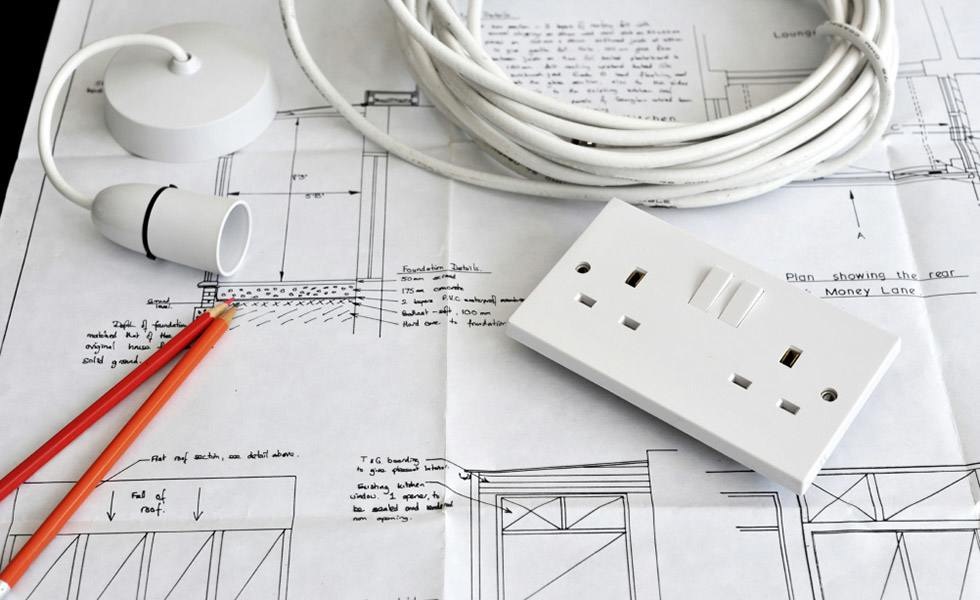
Key Takeaways
- House rewiring is crucial for safety and efficiency in home renovation projects.
- Ignoring outdated electrical systems poses fire and shock hazards.
- Modern wiring can improve property value and accommodate today’s technology needs.
- Qualified electricians are essential for safe and up-to-code installation.
- Planning and communication with professionals ensure smooth project progress.
- Rewiring may be disruptive, but it leads to long-term savings and security.
Table of Contents
- Why Rewiring Matters in Home Renovations
- Hidden Risks of Outdated Electrical Systems
- Recognizing the Signs Your House Needs Rewiring
- Planning a Rewiring Project During Renovations
- Choosing the Right Professional for the Job
- What to Expect During the Rewiring Process
- Boosting Home Value and Safety with Modern Wiring
- Frequently Asked Questions
- Conclusion: Securing Your Home’s Future with Proper Rewiring
Why Rewiring Matters in Home Renovations
When updating a home—whether to enhance beauty, comfort, or overall functionality—many homeowners focus on visible finishes and overlook the essential systems behind the walls. Yet, prioritizing electrical upgrades during your remodel is key to ensuring safety and supporting your modern lifestyle. Integrating house rewiring services in Raleigh NC, early in your renovation ensures your home’s infrastructure is reliable and ready for today’s energy demands. Modern appliances, entertainment systems, and innovative tech require updated wiring to operate efficiently and safely. Electrical failures are among the top causes of home structure fires nationwide. Investing in rewiring keeps your home compliant with current electrical codes and provides peace of mind for years to come.
Hidden Risks of Outdated Electrical Systems
Many older homes still rely on original wiring, which may be decades old. Materials like knob-and-tube or aluminum wiring, common in houses built before the 1980s, are now recognized as fire hazards. As wiring degrades, risks multiply—worn insulation, corroded connections, and overloaded circuits can result in power outages or electrical fires.
- Flickering lights or frequently tripped circuit breakers are often the first signs of trouble.
- Discolored or unusually warm outlets may indicate overheating hidden behind the walls.
- Unsecured, deteriorating wires can create dangerous “hot spots” prone to ignition.
Renovators should never underestimate these hidden dangers, as addressing electrical issues after finishing cosmetic upgrades can be more disruptive and expensive.
Recognizing the Signs Your House Needs Rewiring
Unsure whether your electrical system is due for an upgrade? Watch for these common red flags:
- Recurrence of blown fuses or tripped breakers—even with moderate electricity use.
- Audible buzzing or the presence of a burning smell by outlets or switches.
- Electric shocks or excessive heat when touching outlets or switch plates.
- Plugs that don’t fit three-prong devices, hinting at ungrounded outlets.
- Visible, frayed, or brittle wiring in accessible areas like the basement or attic.
If any signs sound familiar in your home, consult a licensed electrician promptly before renovating.
Planning a Rewiring Project During Renovations
Early planning is essential for a smooth rewiring project during home renovations. Before demolition or finalizing new layouts, it’s essential to map out future electrical needs—such as extra outlets in high-traffic areas, dedicated circuits for heavy-use appliances, and wiring provisions for innovative systems or home offices. Work closely with your renovation team and licensed electrician to create a detailed plan that integrates seamlessly with the overall design. Modern wiring improves safety and efficiency and ensures your home can handle greater connectivity demands. Adding protective measures like whole-house surge protection and arc-fault circuit breakers helps prevent hazards before they occur, giving your renovated space safety and long-term reliability.
Choosing the Right Professional for the Job
Attempting electrical work alone is risky and can result in costly mistakes or failed inspections. Always hire an insured, experienced electrician with expertise in renovations and older home rewiring. Look for professionals who:
- Hold up-to-date licensure and provide evidence of insurance
- Can offer references from previous projects or verified online reviews
- Give transparent estimates and clear project timelines
- Understand and meet local building codes and permitting requirements
A capable electrician will coordinate seamlessly with your remodeling contractor, ensuring each step is completed in its proper order and avoiding unnecessary delays.
What to Expect During the Rewiring Process
While disruptive, the rewiring stage is a short-lived but vital part of any substantial home renovation. Once power is shut off in relevant areas, electricians will typically remove old wiring, install new lines, swap out outlets, and upgrade panels or breakers as needed. Restoration of drywall and repainting are the final steps.
- Temporary power shutdowns may last from several hours to a day or two for larger projects.
- Openings in walls and ceilings as new wires are installed and connections are made.
- Coordinate with other professionals, such as drywall installers and painters, to finish surfaces after completing electrical work.
Clear communication with your electrical team can help prepare your household and minimize inconvenience.
Boosting Home Value and Safety with Modern Wiring
Updated electrical systems deliver more than peace of mind; they translate into tangible value for your home. Real estate professionals note that buyers are drawn to homes with modern wiring, extra outlets, and advanced breaker protection—features that position your property as safer and more functional in today’s tech-driven world. Proactively investing in rewiring not only lowers your risk of electrical failures and fire but also streamlines the process of buying or renewing homeowners’ insurance, as many insurers require electrical updates for coverage.
Frequently Asked Questions
- How often should house wiring be replaced? Most experts recommend a thorough inspection every 25–40 years, especially for homes built before 1980, to ensure safety and code compliance.
- Can I live at home during the rewiring? It’s possible, but some families stay elsewhere during the most disruptive phases for comfort and safety.
- Does home insurance require rewiring? Many insurers expect electrical upgrades before issuing or extending a policy, particularly after extensive renovations.
Conclusion: Securing Your Home’s Future with Proper Rewiring
House rewiring may seem like a disruptive step in your renovation journey, but it is one of the most critical investments for long-term safety, efficiency, and peace of mind. Addressing outdated wiring protects your family from hidden hazards while future-proofing your property for modern technology and increased energy demands. Partnering with a qualified electrician ensures the process is completed smoothly, safely, and in line with current codes. In the end, a rewired home is more secure and valuable—giving you confidence that your renovation improves both comfort and protection for years to come.








